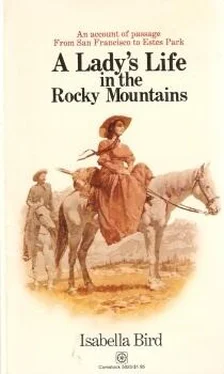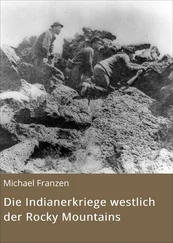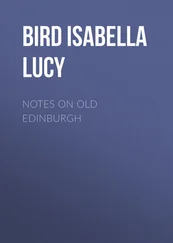Food is a great difficulty. Of thirty milch cows only one is left, and she does not give milk enough for us to drink. The only meat is some pickled pork, very salt and hard, which I cannot eat, and the hens lay less than one egg a day. Yesterday morning I made some rolls, and made the last bread into a bread-and-butter pudding, which we all enjoyed. To-day I found part of a leg of beef hanging in the wagon shed, and we were elated with the prospect of fresh meat, but on cutting into it we found it green and uneatable. Had it not been for some tea which was bestowed upon me at the inn at Longmount we should have had none. In this superb air and physically active life I can eat everything but pickled pork. We breakfast about nine, dine at two, and have supper at seven, but our menu never varies.
Today I have been all alone in the park, as the men left to hunt elk after breakfast, after bringing in wood and water. The sky is brilliant and the light intense, or else the solitude would be oppressive. I keep two horses in the corral so as to be able to explore, but except Birdie, who is turned out, none of the animals are worth much now from want of shoes, and tender feet.
I. L. B.
A dismal ride — A desperado's tale — "Lost! Lost! Lost!" — Winter glories — Solitude — Hard times — Intense cold — A pack of wolves — The beaver dams — Ghastly scenes — Venison steaks — Our evenings.
ESTES PARK.
I must attempt to put down the trifling events of each day just as they occur. The second time that I was left alone Mr. Nugent came in looking very black, and asked me to ride with him to see the beaver dams on the Black Canyon. No more whistling or singing, or talking to his beautiful mare, or sparkling repartee.
His mood was as dark as the sky overhead, which was black with an impending snowstorm. He was quite silent, struck his horse often, started off on a furious gallop, and then throwing his mare on her haunches close to me, said, "You're the first man or woman who's treated me like a human being for many a year." So he said in this dark mood, but Mr. and Mrs. Dewy, who took a very deep interest in his welfare, always treated him as a rational, intelligent gentleman, and in his better moments he spoke of them with the warmest appreciation. "If you want to know," he continued, "how nearly a man can become a devil, I'll tell you now." There was no choice, and we rode up the canyon, and I listened to one of the darkest tales of ruin I have ever heard or read.
Its early features were very simple. His father was a British officer quartered at Montreal, of a good old Irish family. From his account he was an ungovernable boy, imperfectly educated, and tyrannizing over a loving but weak mother. When seventeen years old he saw a young girl at church whose appearance he described as being of angelic beauty, and fell in love with her with all the intensity of an uncontrolled nature. He saw her three times, but scarcely spoke to her. On his mother opposing his wish and treating it as a boyish folly, he took to drink "to spite her," and almost as soon as he was eighteen, maddened by the girl's death, he ran away from home, entered the service of the Hudson's Bay Company, and remained in it for several years, only leaving it because he found even that lawless life too strict for him. Then, being as I suppose about twenty-seven, he entered the service of the United States Government, and became one of the famous Indian scouts of the Plains, distinguishing himself by some of the most daring deeds on record, and some of the bloodiest crimes. Some of these tales I have heard before, but never so terribly told. Years must have passed in that service, till he became a character known through all the West, and much dreaded for his readiness to take offence, and his equal readiness with his revolver. Vain, even in his dark mood, he told me that he was idolized by women, and that in his worst hours he was always chivalrous to good women. He described himself as riding through camps in his scout's dress with a red scarf round his waist, and sixteen golden curls, eighteen inches long, hanging over his shoulders. The handsome, even superbly handsome, side of his face was towards me as he spoke. As a scout and as an armed escort of emigrant parties he was evidently implicated in all the blood and broil of a lawless region and period, and went from bad to worse, varying his life by drunken sprees, which brought nothing but violence and loss.
The narrative seemed to lack some link, for I next found him on a homestead in Missouri, from whence he came to Colorado a few years ago. There, again, something was dropped out, but I suspect, and not without reason, that he joined one or more of those gangs of "border ruffians" which for so long raided through Kansas, perpetrating such massacres and outrages as that of the Marais du Cygne. His fame for violence and ruffianism preceded him into Colorado, where his knowledge of and love of the mountains have earned him the sobriquet he now bears. He has a squatter's claim and forty head of cattle, and is a successful trapper besides, but envy and vindictiveness are raging within him. He gets money, goes to Denver, and spends large sums in the maddest dissipation, making himself a terror, and going beyond even such desperadoes as "Texas Jack" and "Wild Bill"; and when the money is done returns to his mountain den, full of hatred and self-scorn, till the next time. Of course I cannot give details.
The story took three hours to tell, and was crowded with terrific illustrations of a desperado's career, told with a rush of wild eloquence that was truly thrilling.
When the snow, which for some time had been falling, compelled him to break off and guide me to a sheltered place from which I could make my own way back again, he stopped his horse and said, "Now you see a man who has made a devil of himself! Lost! Lost! Lost! I believe in God. I've given Him no choice but to put me with 'the devil and his angel.' I'm afraid to die. You've stirred the better nature in me too late. I can't change. If ever a man were a slave, I am. Don't speak to me of repentance and reformation. I can't reform. Your voice reminded me of — — -." Then in feverish tones, "How dare you ride with me? You won't speak to me again, will you?" He made me promise to keep one or two things secret whether he were living or dead, and I promised, for I had no choice; but they come between me and the sunshine sometimes, and I wake at night to think of them. I wish I had been spared the regret and excitement of that afternoon. A less ungovernable nature would never have spoken as he did, nor told me what he did; but his proud, fierce soul all poured itself out then, with hatred and self-loathing, blood on his hands and murder in his heart, though even then he could not be altogether other than a gentleman, or altogether divest himself of fascination, even when so tempestuously revealing the darkest points of his character. My soul dissolved in pity for his dark, lost, self-ruined life, as he left me and turned away in the blinding storm to the Snowy Range, where he said he was going to camp out for a fortnight; a man of great abilities, real genius, singular gifts, and with all the chances in life which other men have had. How far more terrible than the " Actum est: periisti " of Cowper is his exclamation, "Lost! Lost! Lost!"
The storm was very severe, and the landmarks being blotted out, I lost my way in the snow, and when I reached the cabin after dark I found it still empty, for the two hunters, on returning, finding that I had gone out, had gone in search of me. The snow cleared off late, and intense frost set in. My room is nearly the open air, being built of unchinked logs, and, as in the open air, one requires to sleep with the head buried in blankets, or the eyelids and breath freeze. The sunshine has been brilliant to-day. I took a most beautiful ride to Black Canyon to look for the horses. Every day some new beauty, or effect of snow and light, is to be seen. Nothing that I have seen in Colorado compares with Estes Park; and now that the weather is magnificent, and the mountain tops above the pine woods are pure white, there is nothing of beauty or grandeur for which the heart can wish that is not here; and it is health giving, with pure air, pure water, and absolute dryness. But there is something very solemn, at times almost overwhelming, in the winter solitude. I have never experienced anything like it even when I lived on the slopes of Hualalai. When the men are out hunting I know not where, or at night, when storms sweep down from Long's Peak, and the air is full of stinging, tempest-driven snow, and there is barely a probability of any one coming, or of my communication with the world at all, then the stupendous mountain ranges which lie between us and the Plains grow in height till they become impassable barriers, and the bridgeless rivers grow in depth, and I wonder if all my life is to be spent here in washing and sweeping and baking.
Читать дальше












